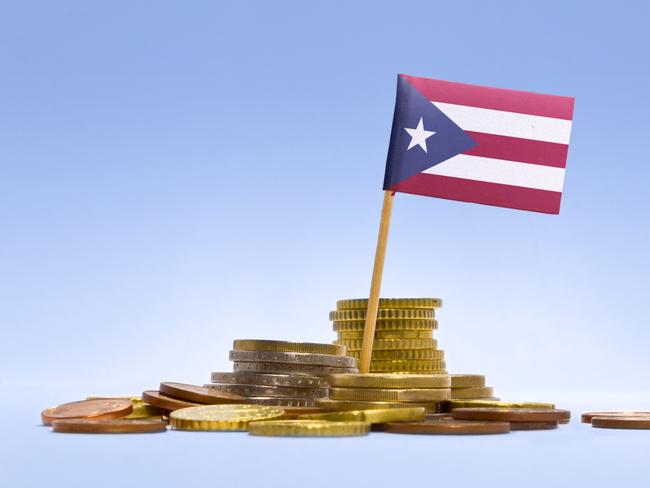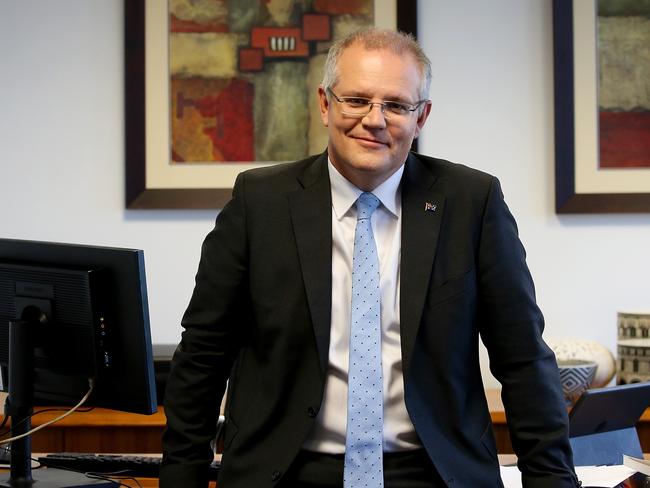Tim Blair: Adios to surplus — It won’t end well, amigos
OUR addiction to handouts, and the lack of political will to tackle the issue, has left the economy looking like a Latin American basket case, says Tim Blair.
Opinion
Don't miss out on the headlines from Opinion. Followed categories will be added to My News.
‘HOLA!” as they say down Puerto Rico way. Or, as they also say in Puerto Rico, and with increasing frequency: “Please give me some money, for I am completely broke and have eaten my burro.”
Australia cannot learn much from Latin American economies, except in one crucial area. Those economies show us exactly and repeatedly which policies no sane country should ever pursue. Venezuela, for example, teaches us that establishing a crazy socialist cult will rapidly convert a nation with the world’s greatest-known oil reserves into an above-ground sewer where toothpaste is a luxury and the treasury has insufficient funds to print money.

Cuba informs us how difficult it is to base an economy on Che Guevara T-shirts and rusty old American cars running transplanted tractor engines. And what of Puerto Rico?
As it happens, Puerto Rico’s lesson is both straightforward and, for Australians in a Budget week, particularly timely. Puerto Rico teaches us that if you keep living beyond your means, sooner or later really bad things start to happen.

Last week the Los Angeles Times reported: “Puerto Rico Gov. Ricardo Rossello said Wednesday that federal courts would help protect the US territory from its more than $70 billion debt crisis, after multiple creditors filed lawsuits trying to recuperate millions of dollars invested in government bonds.
“Rossello said negotiations with bondholders had failed, forcing the government to seek relief through a bankruptcy-like move available under Title III of a federal law called Promesa.”
So the joint is basically bankrupt, being some $A94 billion in debt and with another $A66 billion in unfunded pension obligations. That debt figure works out to around $27,000 for each of Puerto Rico’s 3.4 million citizens. No wonder the place is toast, and no wonder Latin American economics continue to amuse anybody with a functioning calculator.
There’s no way a stable, economically sensible place like Australia would ever find itself in anything like Puerto Rico’s position. We’re prudent, level-headed and rational. We’d never allow debt to consume our nation and burden future generations.
Except we have and are. Worse still, unlike even Puerto Rico, we’re not doing anything about it.
Australia’s gross government debt is presently nudging towards $500 billion, up from $53 billion just ten years ago. Once we hit that half-trillion point, our debt per person will be a Puerto Rico-like $21,000. That’s more than twenty large for every man, woman and child in the whole country — and for every newborn.
Welcome to Australia, kid, and here’s your interest bill.
You’d expect, in that situation, the lead-up to Tuesday’s federal Budget would have been dominated by talk of spending cuts, debt reduction and the overwhelming need to avoid becoming the world’s southernmost Latin American basket case. Instead, the Budget is all about spending and government expansion — and Treasurer Scott Morrison’s comical and evasive attempt to distinguish “good” debt from “bad” debt.
Señor Morrison was at it again on the weekend, telling The Daily Telegraph columnist Laurie Oakes that “you’ve got to pay for what you spend” while dodging any serious commitment to smash debt.
Finance Minister Mathias Cormann took a similar line, promising that “it will be a very practical Budget. It will focus on housing affordability. It will focus on energy security. It will focus on a whole range of issues that people across Australia expect us to focus on.”
Except debt, of course. The government is now so spooked by the possibility of a negative reaction to any major debt reduction that it’s all but abandoned even considering it. So they’ll carry on spending until we reach the point where household affordability is replaced as an issue by underwear affordability and family pets will be selected according to protein yield.

Well, maybe not. Similar levels of individual debt aside, it isn’t as though we’re in Puerto Rico’s situation. Australia hasn’t endured (yet) many years of recession, we don’t suffer high unemployment and the economy is strong. Yet the same is occasionally true of Latin American economies, before the inevitable leftist compulsion to ruin everything kicks in.
In 1986, Paul Keating — the last Labor treasurer to deliver a surplus, by the way — warned that if Australia did not achieve economic reform, “Australia is basically done for. We will just end up being a third-rate country. A banana republic.”
Unless we can reform our approach to debt, which demands a complete re-imagining of government’s role in the economy, we’re headed down the same path.
Tuesday’s Budget won’t do anything of note to deal with this. It will mostly seek to pacify tax recipients and continue penalising tax generators. And in his Budget reply speech, Bill Shorten will complain about how unfair the Budget is on the Australian handout-community.
We’ve culturally appropriated Latin American economics. For that matter, with our fondness for overthrowing elected leaders, we’ve culturally appropriated Latin American politics. It won’t end well, amigos.
‘INDEPENDENT’ JOURNALISTS SAVAGED
SO much for Fairfax’s “Independent. Always” slogan. Journalists who exercised their independence by defying the Fairfax strike in Sydney, Melbourne and Brisbane have been savaged online by Fairfax journalists and their bolshie supporters.
The worst abuse was aimed at Elizabeth Farrelly after the freelancer filed her scheduled Saturday Sydney Morning Herald column.
“Oh ye righteous, ye quick to judge,” Farrelly wrote on Twitter after the initial wave of Twitter assaults. “I’ve no ‘job’ to keep. Freelance, I’m sans union rights, strike protectns, role, tho’ I grieve for the SMH.”
That only enraged the Fairfax collective even more. “Scab,” one replied. “Scab,” answered another. “Scab,” declared a third. “Scab dog,” offered a more expansive commentator.
“Your actions undermine the workers’ fight. They have only one weapon, withdrawal of labour. So you disarm them. Knowingly,” fumed comedian Anthony Morgan, before signing off: “Scab.” Fairfax “news and views” editor Jenny Noyes warned: “Filing while your editor is on strike can backfire in more than one way.”
Besides “scab”, another term frequently appearing online in relation to Fairfax is “quality journalism”, something said to be threatened by reduced budgets and staff.
Big budgets and huge staff numbers may provide broad resources, but quality depends on other factors. Consider that back in 2008, when Fairfax was cashed up and editorial stocks were relatively abundant, Fairfax alleged Sarah Palin had called Barack Obama “Sambo” during that year’s US election campaign.
The story, filed by a senior Fairfax correspondent in the US, was sourced from an anonymous waitress telling a blogger using a fake name about something the waitress claims was said at an unnamed restaurant on an unspecified date in a city the blogger didn’t identify. It ran on the front pages of both the Age and the SMH. That’s quality for you.



